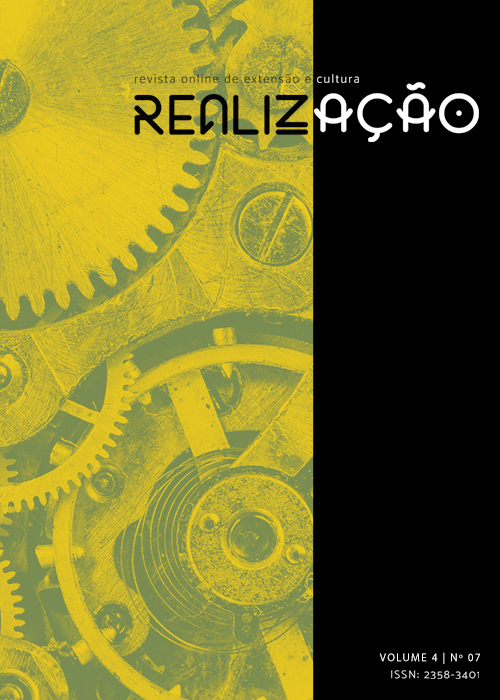Analysis of criminal and penal law regarding compensatory penalties in environmental issues from the perspective of the economic mainstream
Keywords:
Degradation , Environmental education , Environmental law , Compensation , ResponsibilitiesAbstract
Analysis of criminal and penal law regarding compensatory penalties in environmental issues from the perspective of the economic mainstream
The purpose of this article is to seek, through research, information about the current Brazilian environmental context, how the law interprets the facts and what the compensatory penalties are from the perspective of the Economic Mainstream, as well as to assist in the study of environmental commitment in the criminal sphere, with the aim of verifying which positive and negative points related to what has been produced on the subject by scholars, legislators and also by case law. The methodology used was a theoretical review, where information on environmental and criminal law was sought in scientific articles and books, in addition to decrees, laws, government websites, as well as the study of the economic view in the environmental sphere. Through this study, it was possible to reach six subjects of relevance to the theme, since these subjects indicated that there is an interest on the part of the country in protecting the environment. The limitation of the article lies in the fact that the study was exclusively done through theoretical review, even though the research is relevant for other consultations and works. Through laws, tools are found that can penalize those who cause negative environmental externalities, according to the different forms of pollution and damage caused.
Downloads
References
ANTUNES, D. Externalidades negativas sobre o meio ambiente. Revista de Ciências Gerenciais. Vol. XIII, N.18, 2009.
BRAGA, T. S. Responsabilidade ambiental: Osmecanismos do Direito na reparação dos danos e preservação do meio ambiente. 2011.
BRASIL. Constituição (1988). Constituição da República Federativa do Brasil. Brasília, DF, Senado, 1998.
BRUM, Argemiro J. O desenvolvimento econômico brasileiro. 21. ed. Ijuí: Vozes/Editora Unijuí, 2000.
BULZICO, B. A. Amorim. O Direito Fundamental Ao Meio Ambiente Ecologicamente Equilibrado: Origens, Definições e Reflexos na Ordem Constitucional Brasileira. Dissertação de Mestrado, Curitiba, 2009.
COSTA, H. R. Lobo. Proteção Penal Ambiental. Viabilidade –Efetividade. Tutela por outros ramos do direito. Ed. Saraiva, São Paulo. 2010.FIORILLO, C. A. Pacheco. Curso de direito ambiental brasileiro. 15. ed. Saraiva. 2014.
JANNUZI, S.; BERTÉ, R. A. Tríplice consequência do dano ambiental. Revista Meio Ambiente e Sustentabilidade. Vol.1, n.1/jan-jun,2012.
MAGALHÃES, J. P. A evolução do direito ambiental brasileiro. 1. ed. São Paulo: Oliveira Mendes, 1999.MACHADO, P. A. Leme. Direito Ambiental Brasileiro. ed. 21, 2012
MAY, P.H. Economia do meio ambiente. Teoria e prática. 2. ed. Elsevier editora. Rio de Janeiro, 2010.PLANALTO. Lei N°9.605 de 12 de fevereiro de 1998.
PLANALTO. Lei N° 6.9381981 de 31 de agosto de 1981.
PRADO, L. R. Direito Penal do Ambiente. Ed Revista Dos Tribunais. São Paulo, 2005.
RODRIGUES, M. A. Direito Ambiental Esquematizado. 3. ed, Saraiva. São Paulo, 2016.
SIRVINSKAS, L. Paulo. Manual de Direito Ambiental. 7. ed, Saraiva. São Paulo, 2009.
SOARES, R. A. A. Proteção Ambiental e Desenvolvimento Econômico: Conciliação. 1. ed. Juruá. Curitiba, 2004.THOMÉ, R. Manual de Direito Ambiental. 6. ed. Editora Podivm. Salvador. 2016
Downloads
Published
How to Cite
Issue
Section
License
Copyright (c) 2017 José Cordeiro Neto, Luanne Escobar do Nascimento Oliveira, Luciana Ferreira da Silva

This work is licensed under a Creative Commons Attribution-NonCommercial-ShareAlike 4.0 International License.
Autores que publicam nesta revista aceitam as normas de publicação, bem como, concordam com os seguintes termos:
(a) O Conselho Editorial se reserva ao direito de efetuar, nos originais, alterações da Língua portuguesa para se manter o padrão culto da língua, respeitando, porém, o estilo dos autores.
(b) Autores mantêm os direitos autorais e concedem à revista o direito de primeira publicação, com o trabalho simultaneamente licenciado sob a Creative Commons Atribuição-NãoComercial-CompartilhaIgual 4.0 Internacional que permite: Compartilhar — copiar e redistribuir o material em qualquer suporte ou formato e Adaptar — remixar, transformar, e criar a partir do material. A Creative Commons Atribuição-NãoComercial-CompartilhaIgual 4.0 Internacional considera os termos seguintes:
- Atribuição — Você deve dar o crédito apropriado, prover um link para a licença e indicar se mudanças foram feitas. Você deve fazê-lo em qualquer circunstância razoável, mas de nenhuma maneira que sugira que o licenciante apoia você ou o seu uso.
- NãoComercial — Você não pode usar o material para fins comerciais.
- CompartilhaIgual — Se você remixar, transformar, ou criar a partir do material, tem de distribuir as suas contribuições sob a mesma licença que o original.
- Sem restrições adicionais — Você não pode aplicar termos jurídicos ou medidas de caráter tecnológico que restrinjam legalmente outros de fazerem algo que a licença permita.


